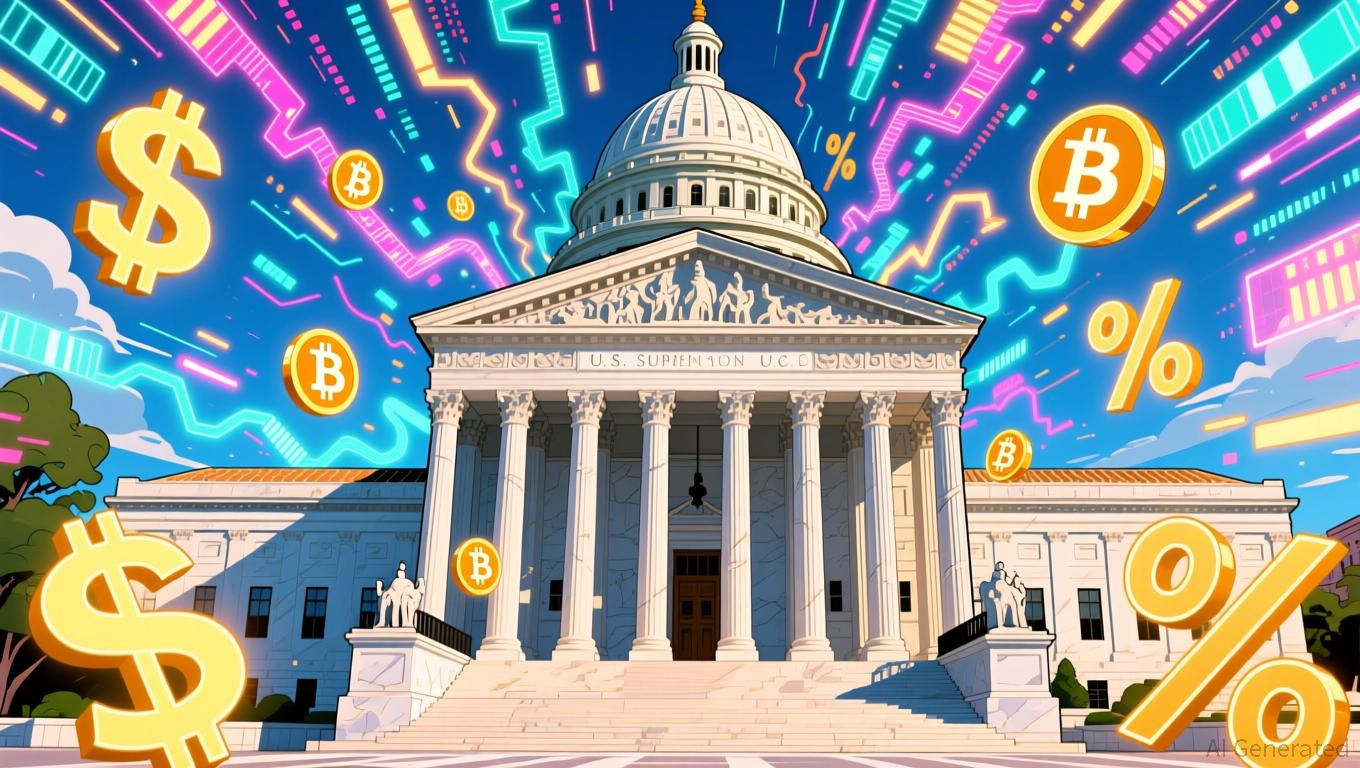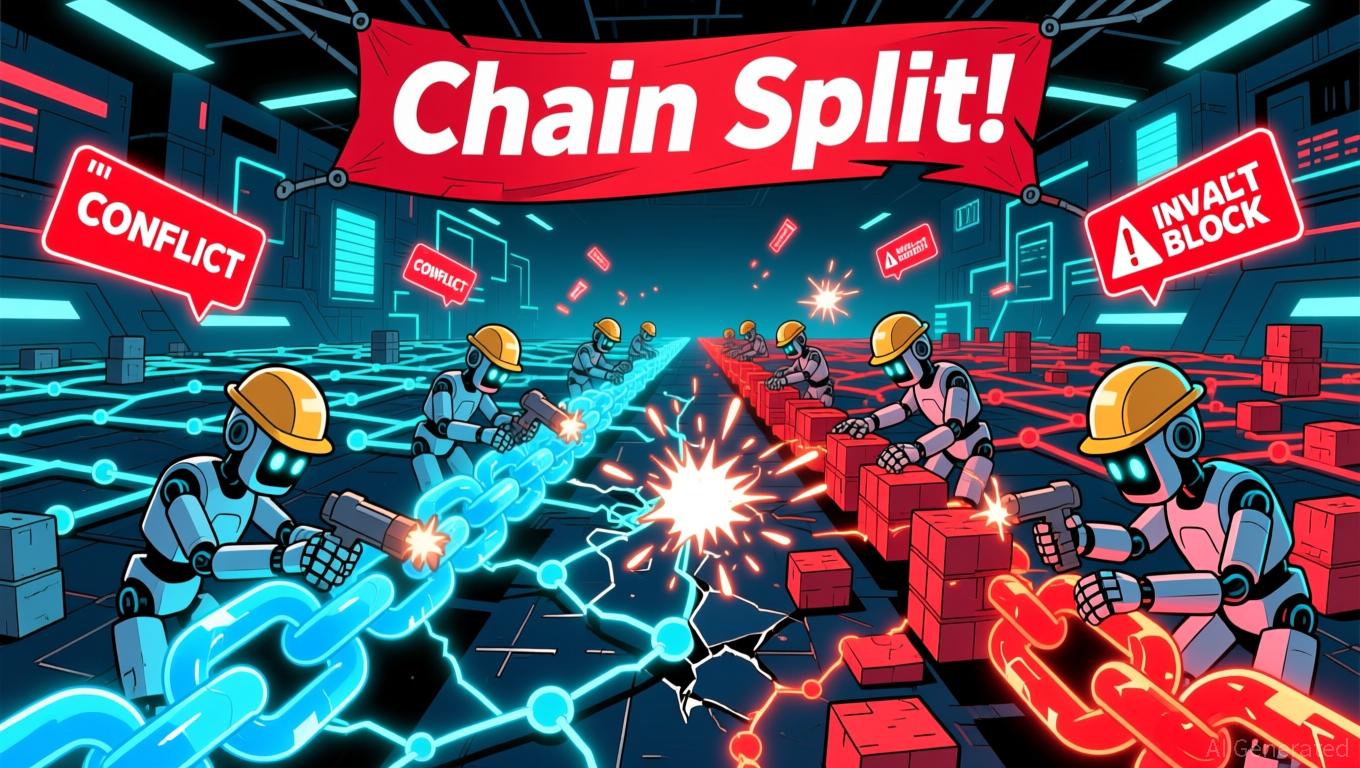Court Decision on IEEPA May Transform Tariff Policies and Cryptocurrency Rules
- U.S. Supreme Court's IEEPA ruling could invalidate Trump-era tariffs, forcing White House to adopt narrower legal tools like Sections 232/301 with slower processes and oversight. - Crypto markets face regulatory shifts as White House reviews CARF framework, which would grant IRS access to foreign crypto data but risks stifling decentralized innovation. - Over 65 crypto groups demand exemptions for decentralized developers amid concerns about prosecution risks and unclear DeFi tax rules under proposed reg
Crypto Markets Prepare for Volatility as White House Considers Tariff Alternatives During Supreme Court Deliberation
The impending Supreme Court ruling on whether the Trump administration’s use of the International Emergency Economic Powers Act (IEEPA) to impose tariffs was lawful has unsettled financial markets, with
IEEPA, a law from the 1970s that empowers presidents to declare national emergencies, has served as the

Meanwhile, the crypto industry is on alert for regulatory changes as the White House evaluates Treasury’s proposal to join the global Crypto-Asset Reporting Framework (CARF).
The intersection of trade and crypto regulation highlights broader risks for the regulatory environment. A Supreme Court decision against IEEPA could delay tariff repayments, extending economic instability and possibly affecting the Federal Reserve’s schedule for lowering interest rates. At the same time, crypto markets are responding to the administration’s simultaneous focus on tariffs and digital asset rules, as investors assess the consequences of increased regulatory oversight. With the court’s verdict approaching, both businesses and investors must navigate a landscape where changes in trade or crypto policy could have global ripple effects.
Disclaimer: The content of this article solely reflects the author's opinion and does not represent the platform in any capacity. This article is not intended to serve as a reference for making investment decisions.
You may also like
Van Eck CEO Managing Billions of Dollars Says, “If This Happens, We’ll Walk Away from Bitcoin,” Names One Altcoin
Bloomberg Analyst Discusses XRP and Solana – “The Altcoin Season May Have Already Happened”
Donald Trump’s Son Eric Trump Speaks After Bitcoin’s Decline
Cardano News Update: Chain Split Highlights Governance Challenges and AI Threats
- Cardano's blockchain suffered a critical chain split on Nov 21, 2025, caused by an AI-generated transaction exploiting a 2022 bug. - Staking pool operator "Homer J" admitted testing network limits with untested AI code, creating competing chains until emergency patch 10.5.3 resolved the split. - Founder Charles Hoskinson called it a "premeditated attack," highlighting risks of double-spending and DeFi disruptions despite no funds being lost. - The incident exposed governance flaws, including unpatched 20
